In the Patxohã (Pataxó) language, aragwa means “sacred place” and aksã means conquest, victory. When you put the two words together you get Aragwaksã, the name given to the ethnic festival that reclaims ancestry, memory, culture and celebrates the achievements of the struggle of the Pataxó people. This year, guests from all over Brazil came to see a historic meeting between two age-old cultures: the Pataxó and the Sateré Mawé.
Tukumã Pataxó and Samela Sateré Mawé, two young indigenous leaders who have been spreading the culture of traditional peoples and their rights to their territories, chose to get married during one of the Pataxó culture’s most important events. For the last 25 years the Aragwaksã has been held in the Jaqueira Reserve, in the municipality of Porto Seguro, in the state of Bahia. It was the first time for the reserve to issue a certificate of traditional indigenous marriage recognizing the Pataxó ceremony as a legitimate setting for the union of a couple in the eyes of the Brazilian state.
On August 1, the date of the wedding, the Pataxó were surprised by the largest audience in the festival’s history.
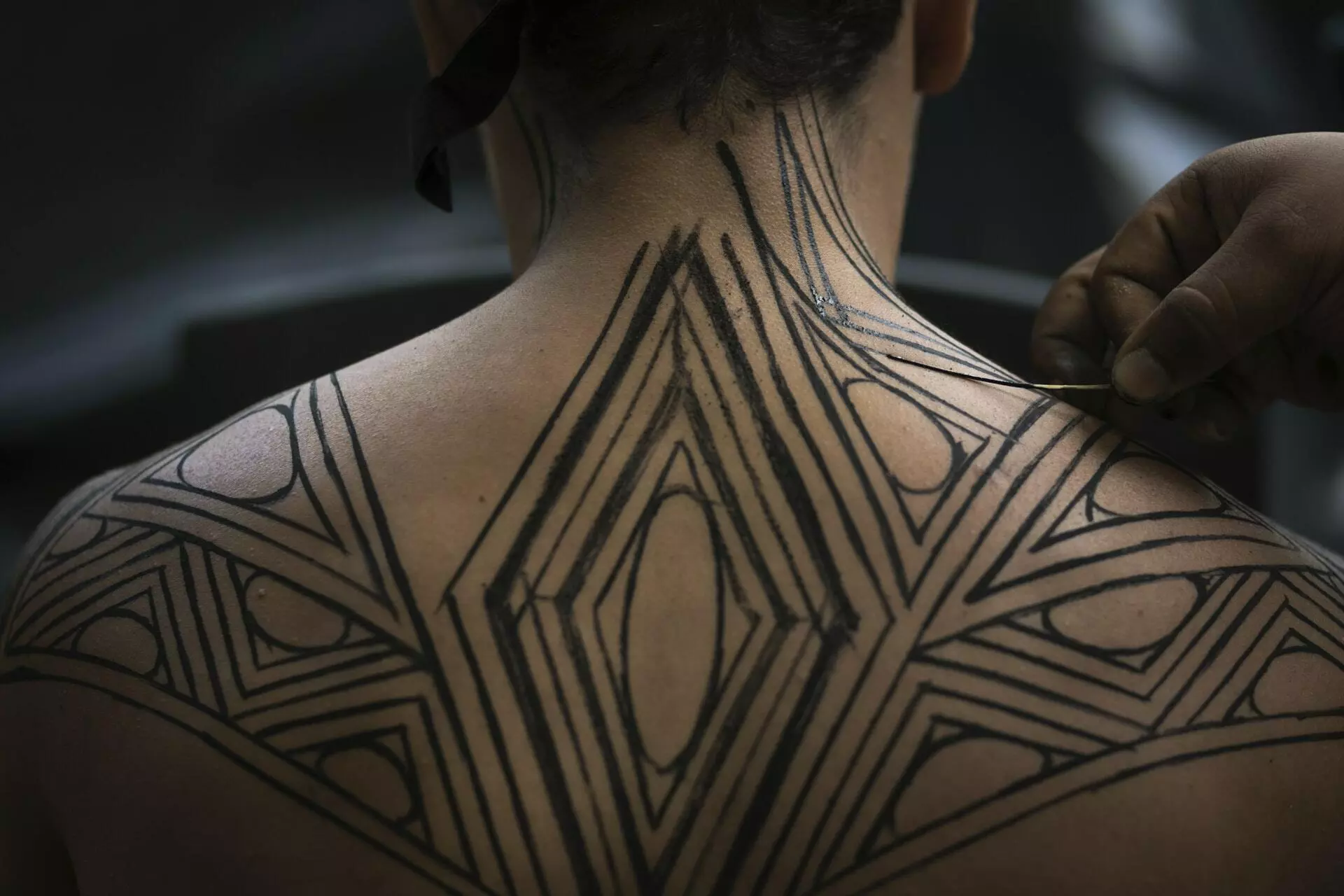
The Pataxós were one of the first peoples to be massacred following the arrival of Portuguese settlers. Their homeland was where the first European caravels arrived in 1500, leading to a landing of Portuguese who held the first Catholic mass in Brazil. For the Pataxó, the Aragwaksã is an opportunity to “deconstruct the myth of Brazil’s discovery,” extolling the resistance and power of their people over the centuries.
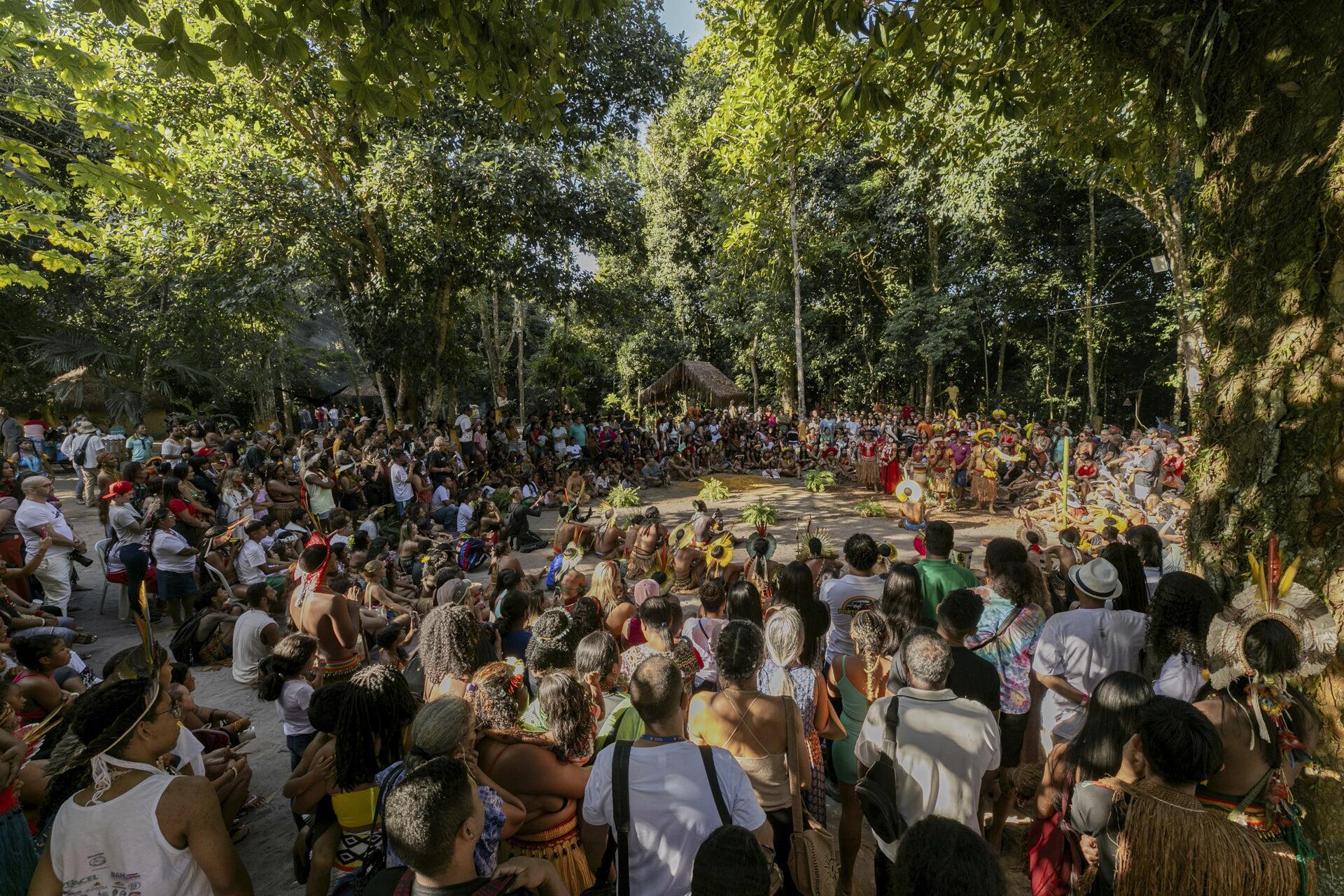
The traditional wedding is a ritual marked by profound symbolism. The couple must undergo several stages of preparation.
The man needs to prove he has the ability to protect his family. In the past, when there were great battles between the native peoples, the warriors’ primary duty was to protect their wives. One way of demonstrating to the community that they were prepared to defend their family was to undergo tests during the wedding ceremony.
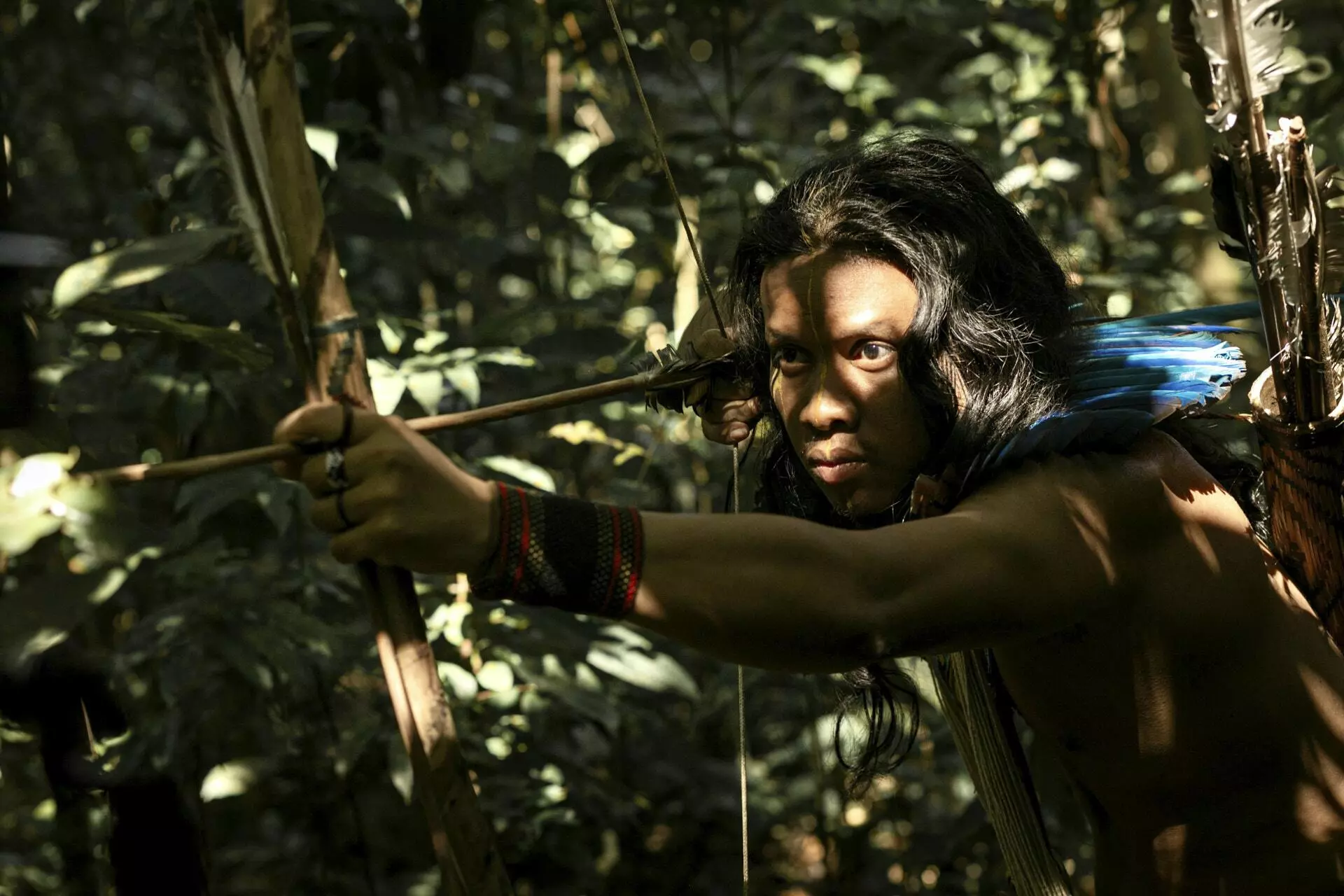
In the modern version of the ritual, the groom has to go hunting in the woods and bring back an animal to feed his future family. If he does not succeed in the hunt, he is not allowed to get married.
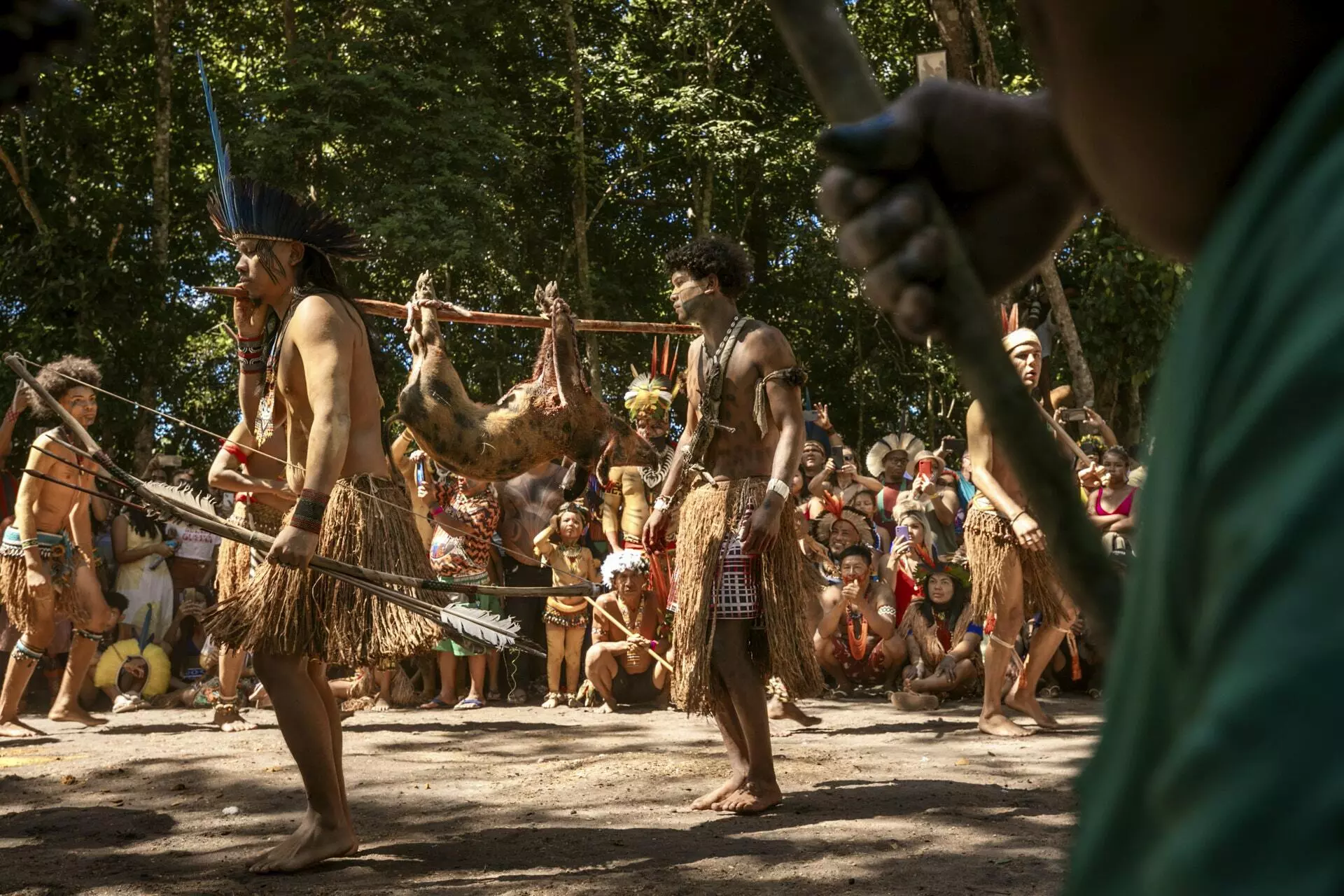
After the hunt, he has to carry a log that weighs the same as the bride over a long distance. The log trial is a test of the warrior’s physical ability to care for his new family.
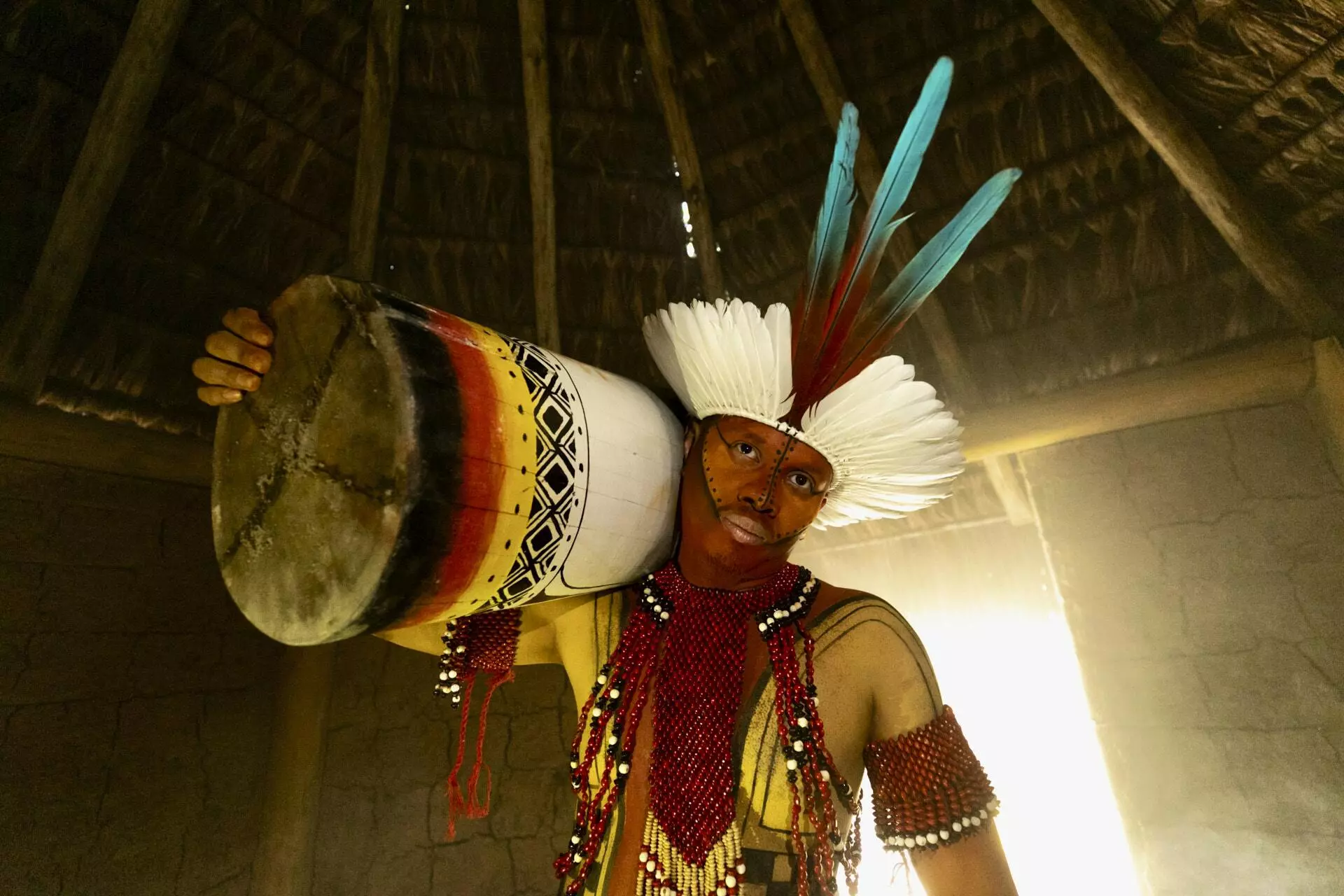
Another important moment is the exchange between the bride and groom of feather headdresses, which are the primary symbol of the union. In the Pataxó ceremony the headdress is the equivalent of a wedding ring.
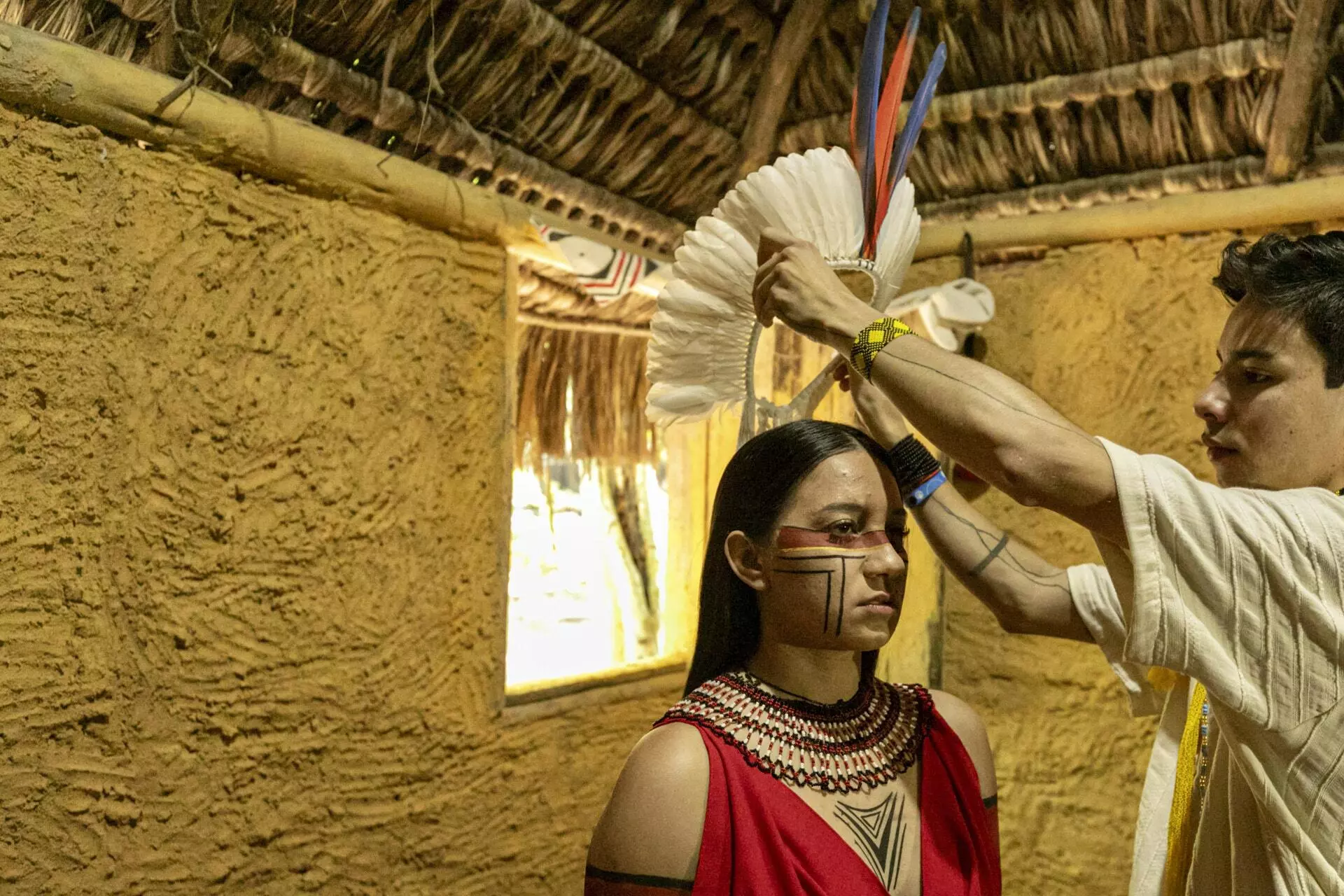
Every detail of the paintings and costumes worn by the bride and groom has a meaning. Tukumã used the colors of his people that are traditional for fighting rituals and important ceremonies. The color red is used by the Pataxós for war; the color black represents mourning for lost relatives and the color white, peace.
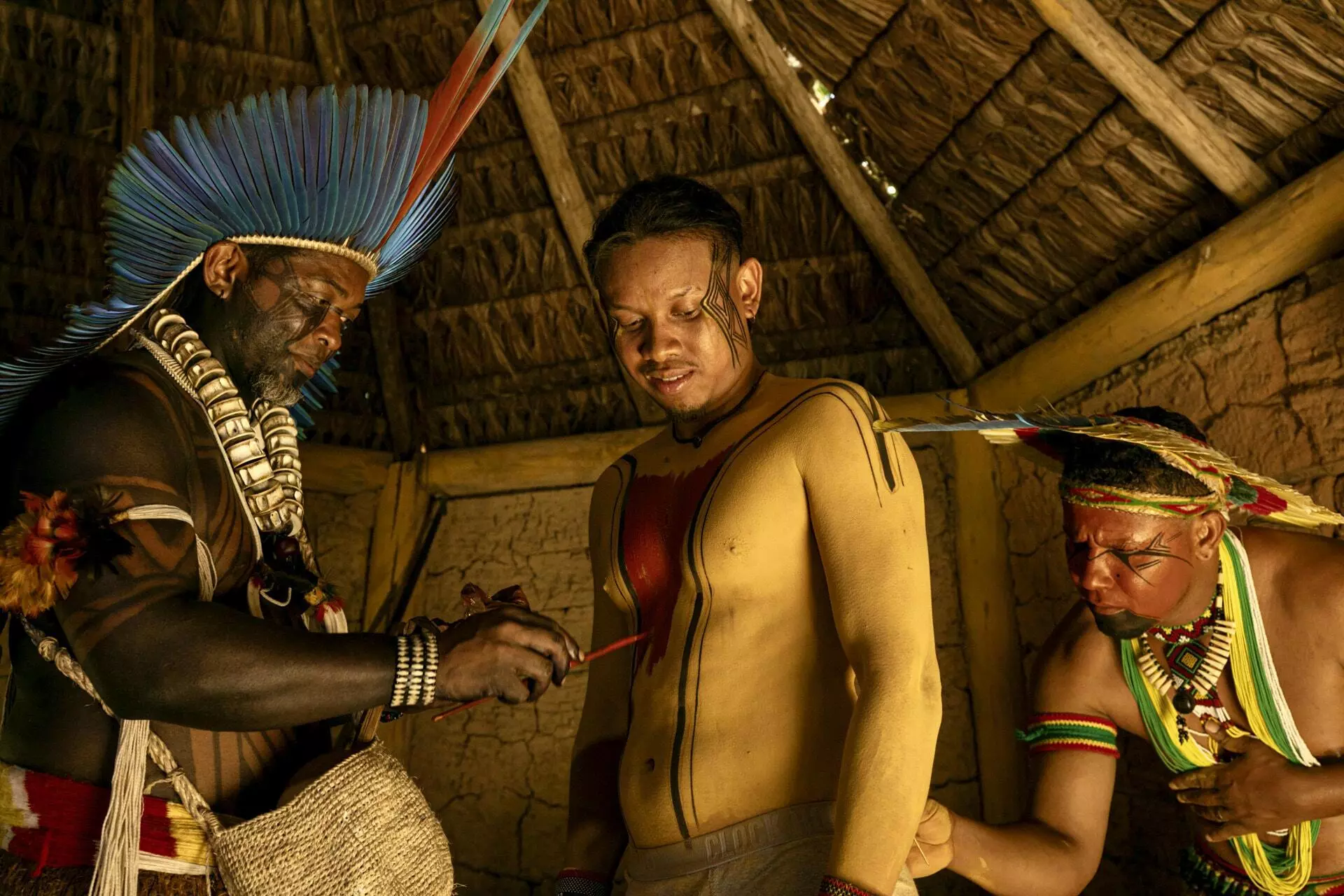
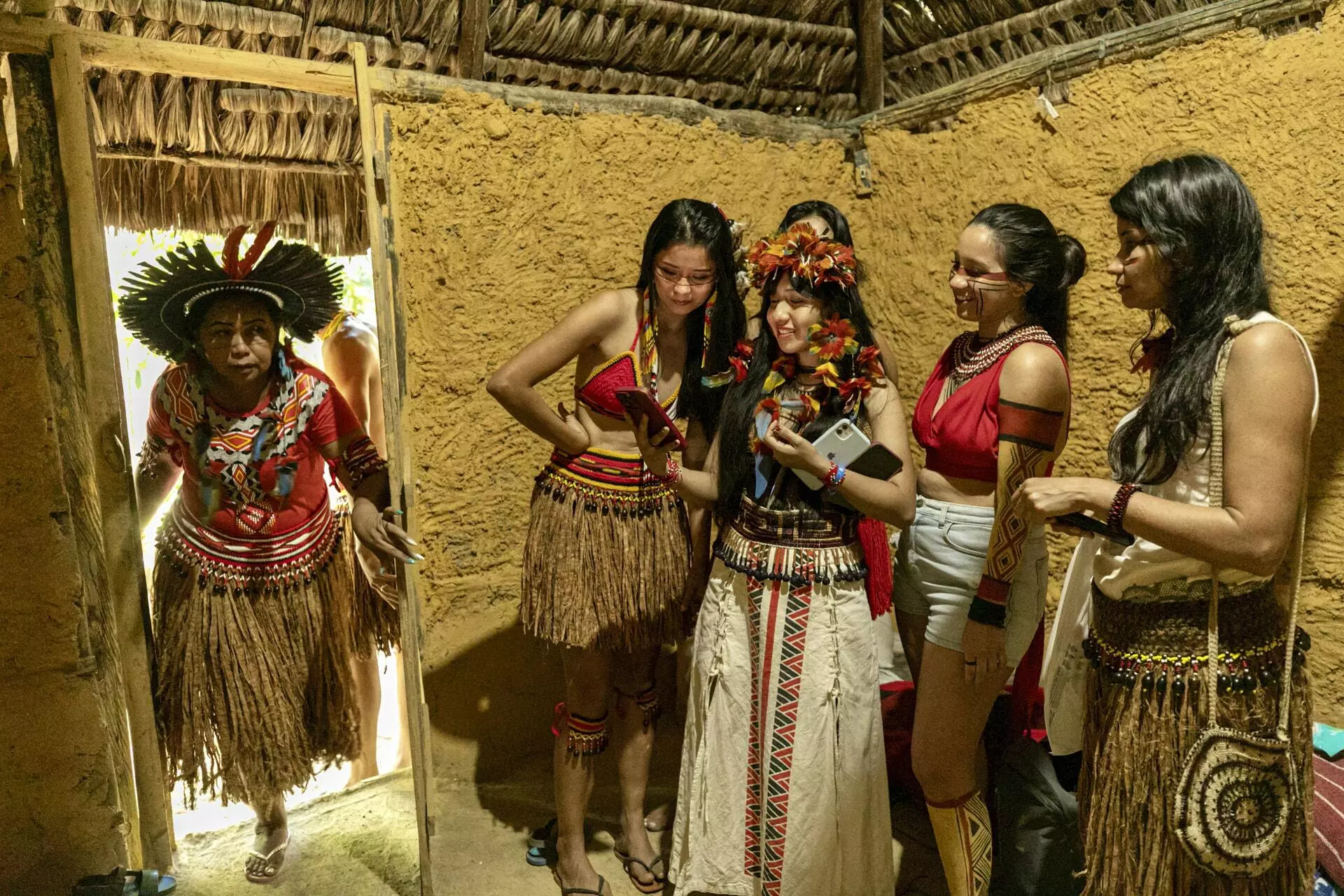
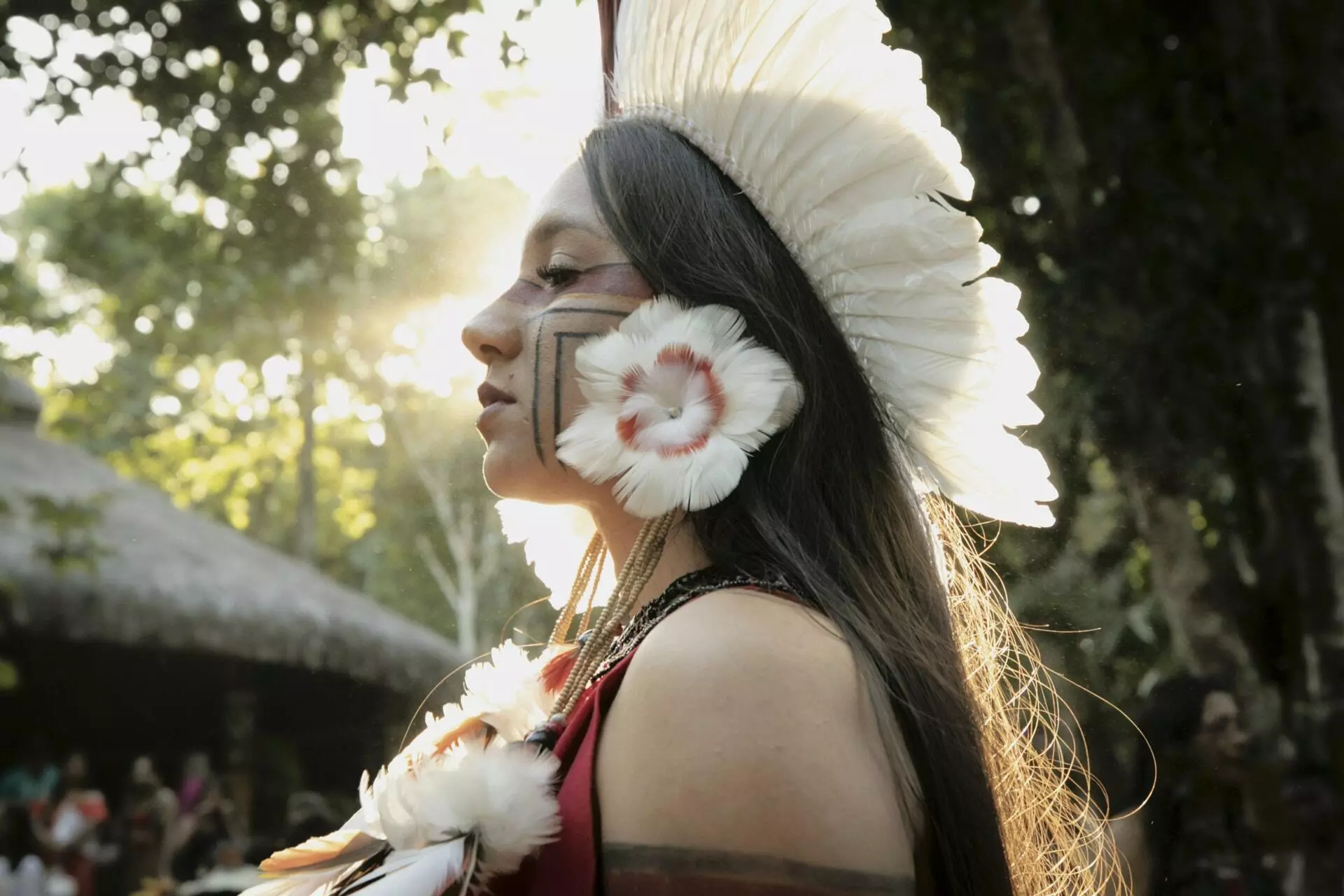
The bride’s dress was made by Mauricio Duarte, a stylist and friend who was born in the city of Manaus. The outfit was made from a natural linen and cotton fabric, dyed red. The skirt was hand-painted by her sister, Sandy Sateré Mawé.
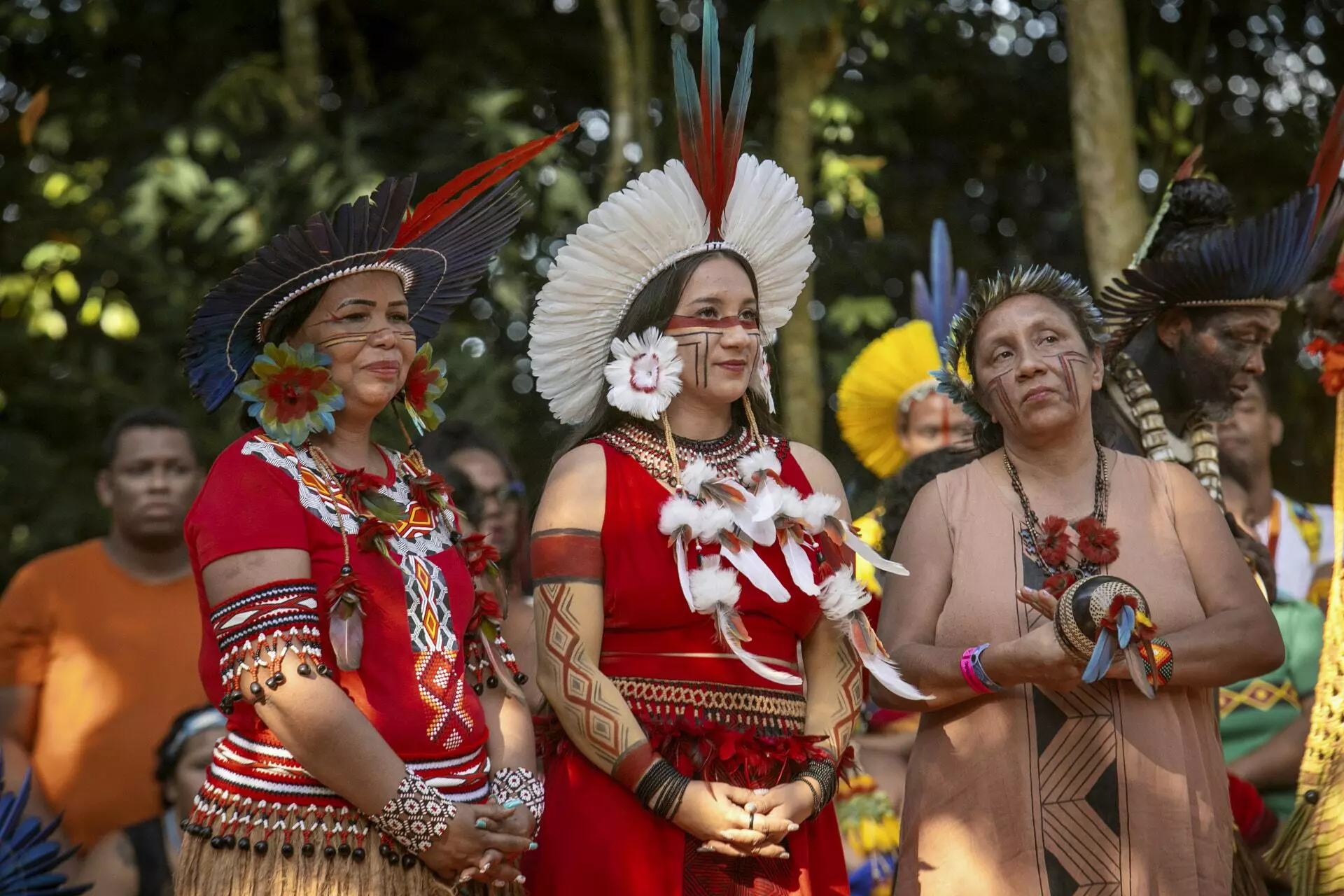
Tukumã Pataxó is 24 and was born and raised in the settlement of Coroa Vermelha, which is located between the municipalities of Porto Seguro and Santa Cruz Cabrália, in the state of Bahia. He is the son and grandson of important indigenous leaders, who were pioneers in the struggle for the demarcation of their people’s lands.
The bride, Samela Sateré Mawé is 26 and comes from the state of Amazonas. She is well known in the field of indigenous communication for producing content regarding the rights of native peoples and their struggle.
Samela and her family were welcomed by the Pataxó people. Tukumã promised he will also go through the rituals in the Sateré Mawé people’s culture. Tukumã and Samela campaign for demarcation using their computer screens and social media to claim their rights and spread knowledge about the culture and traditions of their peoples. Now, the couple will go forward together, having done all they can to ensure the spiritual protection of their ancestors.
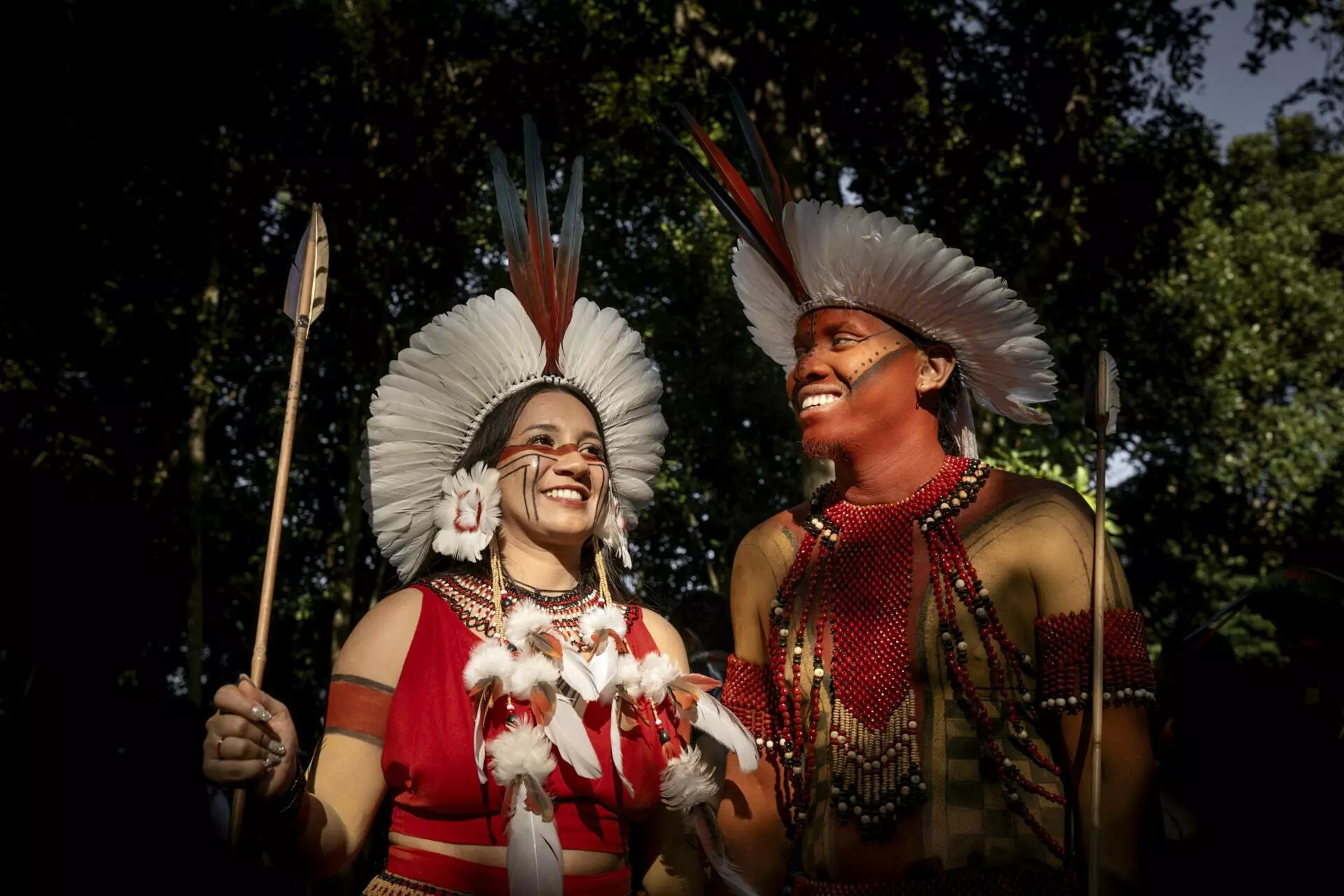
Fact check: Plínio Lopes
Spell check (Portuguese): Elvira Gago
Translation into Spanish: Julieta Sueldo Boedo
English translation: Mark Murray
Photography editing: Mariana Greif
Page setup: Érica Saboya





